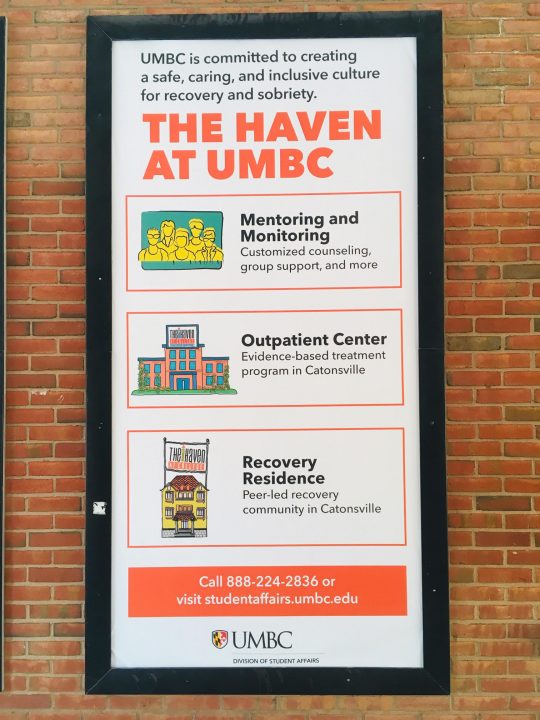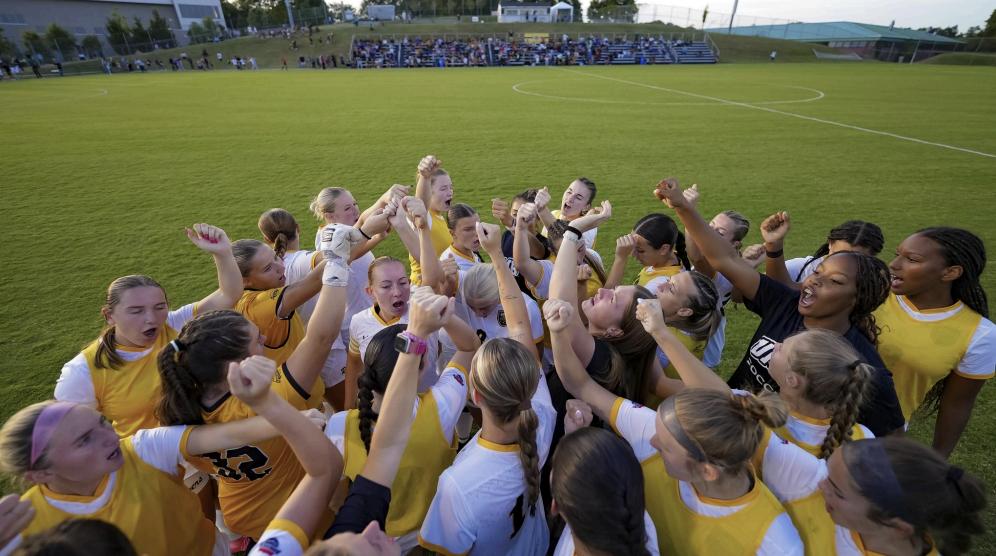In October, the University of Maryland, Baltimore County will officially open its new off-campus facilities to serve sober community members and those struggling with addiction as part of a new partnership with The Haven at College, a nationwide program. The Haven at UMBC will follow the organization’s model featuring a residential facility, an outpatient center and programming events that engage the community.
“We’ve had a need for recovery and treatment services for a long time,” said Dr. Kim Leisey, the Associate Vice President of Student Affairs. “I know in my workings with students who are struggling with substance use disorder or are currently in recovery that oftentimes it means that they have to take a step back from school,” Leisey continued. “This is a really excellent way to take care of themselves … while continuing their education.”
Up until now, “the way that we’ve been serving [students with addictions] is to get them connected to one of our social workers in the counseling center … from there they can be connected to resources,” said Leisey. While this method has worked, having a facility completely dedicated to recovery and treatment services will give clients the care they really need.
The new services will be available for all UMBC students, even individuals taking time off to focus on recovery. “In many cases, [this includes] students who are taking leave from the current semester … a lot of times that’s necessary for students in recovery,” said George Stoddard, the Director of University Relations for The Haven at College. “Really, the requirement is that the individual is on a college track,” said Stoddard.
The Haven Recovery Residence, which quietly opened in Catonsville in August, has two open beds for students in recovery. The small size is “typical” for a new partnership, said Stoddard, but “the potential upside for community building is a lot greater than that [the two beds].”
In addition to the two potential student residents, the house manager also lives in the facility. This UMBC student is also a peer ambassador for the program, a position which entails sitting at the front desk to welcome any potential clients. “As the community grows, there will be other peer ambassadors that are students who have been through it and can relate to the new student [who walks through the door] who’s struggling,” Stoddard said.
Also in Catonsville is the outpatient center, which is planning to be “open and fully operational by mid- to late October,” Leisey said. She added that “people can start contacting them now.” In addition to private programming for student clients of The Haven, the facility will invite members of the community to attend events such as open recovery meetings free of cost. Stoddard said that at The Haven at UC Santa Barbara, “there are regularly anywhere from 30 to 50 people [from the community] coming to our Saturday night meetings.”
Stoddard also stated that the organization will sometimes appear on campus, too. On other campuses, The Haven offers “programming for Greek life, for athletics … they can call us and we can provide that,” Stoddard said. “A lot of times, what we focus on is peer interaction. It’s a lot about normalizing recovery stories.”
As the grand opening of the outpatient center on Oct. 24 approaches, Leisey said that the university will begin to amp up their advertising efforts, but it is hard to gauge how many students will utilize the service. “We’re not really outwardly serving the population right now so it’s kind of hard to tell who will come out of the woodwork,” she said.
Leisey added that “there are people that are impacted by substance use disorder that may not have the problem themselves, but maybe in their family or their partner, so this is also a place where they can go and get support.”
Photo: An advertisement for The Haven at UMBC can be seen in the Breezeway. Photo by Johanna Alonso.

